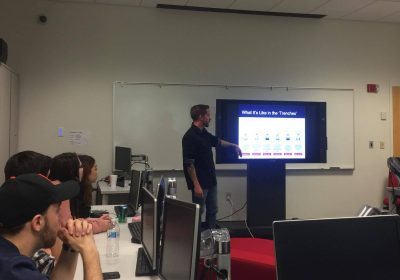
The latest in a series of technology workshops being held by UConn’s Operations and Information Management (OPIM) Department focused on Splunk Analytics. The workshop took place in the Gladstein Lab on Friday, November 11th. Twenty students attended the workshop to learn more about real-time data analytics using the Splunk platform.
The majority of students in attendance were Management Information Systems (MIS) majors, with a few other majors within the School of Business. An accounting major at the workshop said that he was interested in gaining a better understanding of Splunk because he said it is imperative to being competitive in all aspects of the business world.
Professor Jon Moore, the organizer of the technology workshops, opened up with a brief discussion about why the department is conducting the workshops. He said it is a part of a new initiative called OPIM Innovate. The initiative focuses on creating innovation space, fostering research and providing workshops to students and faculty at the university.
Ryan O’Connor, an instructor in the OPIM Department, took over and gave a presentation about the different features and uses of Splunk Analytics, along with an interactive demonstration. O’Connor said that Splunk is used in most Information Technology companies for troubleshooting. He said that it has other uses, such as for Big Data Analytics, Data Mining, and Data Security Intelligence. O’Connor called Splunk the “Google of querying data.” He said Splunk allows users to not have to be as specific when searching for data. “I like how versatile it is and how it allows for transparency in IT organizations,” Any student interested in taking Splunk Analytics classes online should email Ryan O’Connor at ryan.oconnor@uconn.edu.
The next workshop will be taking place on Friday, December 2nd with a focus on Internet of Things technology. Students interested in attending can register here to guarantee a spot in the workshop.
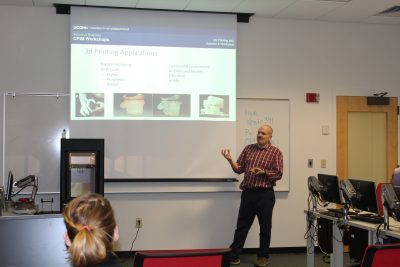
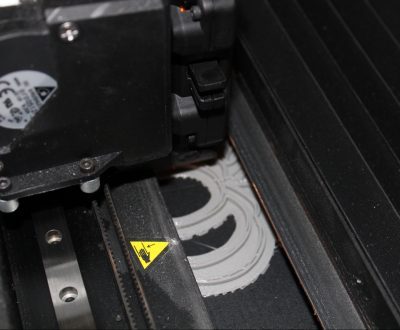
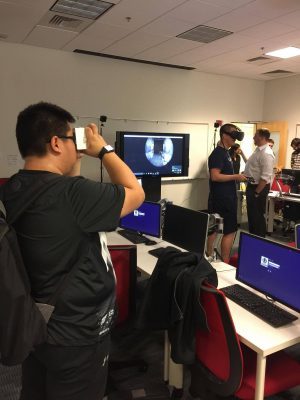 ation Management (OPIM) Department kicked off the first in a series of
ation Management (OPIM) Department kicked off the first in a series of 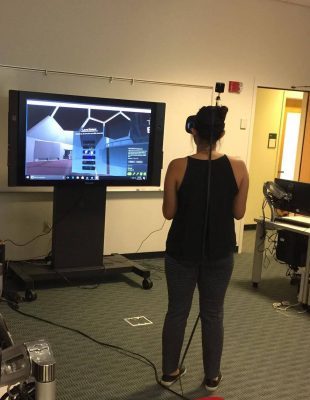 ith students lined up to try it out. The Vive featured a variety of experiences, for both entertainment and education.
ith students lined up to try it out. The Vive featured a variety of experiences, for both entertainment and education.